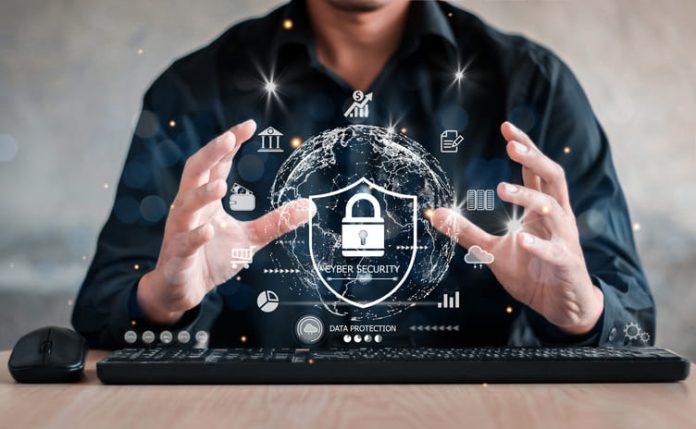In an era where cyber threats are more sophisticated than ever, data breaches and unauthorized access have become critical concerns for businesses worldwide. Whether it’s a startup, mid-size company, or large corporation, ensuring the safety of sensitive information is a non-negotiable priority.
Cybercriminals target companies for various reasons: stealing customer data, accessing financial records, or disrupting operations. A single breach can result in substantial financial losses, legal consequences, and lasting reputational damage. Therefore, companies are increasingly adopting advanced security protocols to protect their digital infrastructure—and one of the most effective tools in this fight is authentication.
Authentication is the process of verifying the identity of a user or system. Traditional methods like passwords alone are no longer sufficient. They are vulnerable to phishing attacks, social engineering, and brute-force tactics. To mitigate these risks, businesses are shifting towards multi-factor authentication (MFA), which adds extra layers of verification. This shift not only enhances security but also builds customer trust, a valuable currency in today’s competitive market.
So, what makes authentication such a game changer?
1. Reduces Risk of Unauthorized Access
Multi-layered authentication significantly lowers the chances of data being accessed by unauthorized individuals. When users are required to provide more than just a password, it becomes considerably more difficult for hackers to bypass the security walls. For instance, requiring a user to confirm their identity via a separate device or channel adds an essential layer of protection.
2. Boosts Consumer Confidence
Trust is the backbone of any business. Customers need to feel confident that their personal data is in safe hands. With regular headlines about data leaks and privacy violations, consumers are more cautious about where and how they share their information. Implementing robust security measures not only protects users but also positions your brand as one that values and prioritizes client safety.
3. Compliance with Regulatory Requirements
Global data protection laws are becoming stricter by the day. Regulations like the General Data Protection Regulation (GDPR) in Europe or the California Consumer Privacy Act (CCPA) in the U.S. mandate businesses to safeguard user data. Using authentication protocols helps ensure your company remains compliant, thus avoiding penalties and maintaining operational integrity.
4. Secures Remote Work Infrastructure
With the rise of remote and hybrid work environments, businesses face the challenge of maintaining data integrity outside the traditional office. Employees accessing systems from various locations and devices increases the risk of breaches. Authentication tools play a critical role in controlling who can access sensitive platforms and from where, ensuring that only verified personnel can log into your systems.
5. Cost-Effective Long-Term Solution
While setting up advanced security frameworks may seem like an added cost, the investment pays off in the long run. The financial consequences of a cyberattack can be devastating—not just in terms of immediate loss, but also due to customer churn, legal action, and system repair costs. Proactive security through authentication tools acts as a safeguard, saving businesses from expensive cleanups.
Implementing Authentication Tools into Your Business
One way businesses are taking action is by using a reliable SMS authentication service. This method delivers a unique verification code directly to a user’s mobile device, ensuring that only the correct individual can gain access to sensitive platforms. It’s fast, user-friendly, and a highly effective form of two-factor verification.
Similarly, an OTP SMS service—which stands for One-Time Password—generates a unique, time-sensitive code for every login attempt. Because the code changes every time, it’s virtually impossible for hackers to predict or replicate it. OTPs are particularly valuable in sectors such as banking, e-commerce, healthcare, and any other industry where data sensitivity is high.
6. Improves User Experience
Contrary to popular belief, tighter security doesn’t have to mean a more cumbersome user experience. Today’s authentication solutions are designed to be both secure and seamless. Customers can verify their identities in just a few seconds, often with a simple tap or code entry. This balance between protection and convenience keeps users satisfied while maintaining a strong defense line.
7. Enables Better Control Over Access Rights
Authentication tools also give businesses greater control over who accesses what. With role-based permissions, administrators can assign specific access levels to employees, vendors, or partners. This ensures that sensitive data is only accessible to those who truly need it, reducing the potential for internal threats or accidental leaks.
Final Thoughts
Security is not just an IT issue—it’s a business issue. In a digital-first world, where trust and reputation are pivotal, implementing strong authentication methods is no longer optional. It’s a strategic necessity.
Whether it’s protecting internal systems, safeguarding customer information, or ensuring compliance with international standards, businesses must take a proactive stance. The integration of secure verification tools provides the peace of mind needed to operate confidently in today’s interconnected world.
As technology evolves, so do the threats. But with the right tools in place, your business can stay one step ahead—resilient, trustworthy, and secure.





































